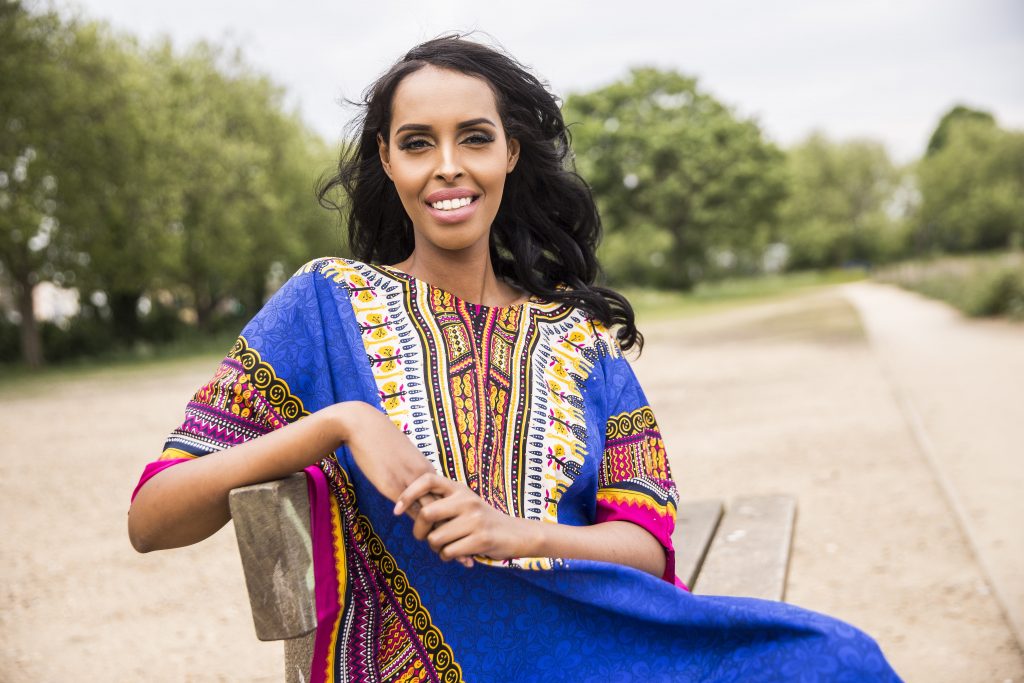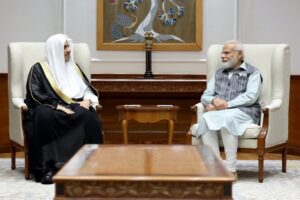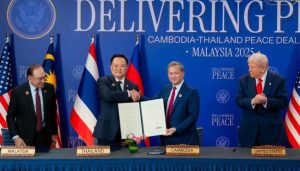
Muna Jama, a 27-year-old Muslim woman from London, had been invited to the finals of the Miss Universe Great Britain pageant
London, MINA – In recent years, the swimsuit portion of beauty pageants has drawn mixed emotions. But for one contestant in July’s Miss Universe Great Britain pageant, it was a downright conundrum. Until she fought for her right to wear a kaftan instead of a bikini, thus making history, the Global News reported.
Muna Jama, a 27-year-old Muslim woman from London, had been invited to the finals of the competition — which selects the Miss Universe finalist that will go on to represent England in the international pageant — two years ago, but declined because she was wary of breaking with her religion’s traditions about wearing revealing clothing.
When she re-entered this year and was again invited to the finals, she negotiated with pageant officials who finally conceded that she could “wear a cover-up if she chose,” muslim-beauty-queen-from-london-has-won-the-right-to-take-part-in-miss-universe-gb-without-baring-all-in-a-bikini-6634622/">Metro UK reports.
Also Read: Russia Defends Indonesia, Calls IOC “Hypocritical” Over Israel Visa Dispute
“I wouldn’t wear a bikini to a beach, so I’m not going to wear one in a competition to score points,” Jama said to the daily.
When it came time to participate in the swimsuit portion of the competition, she appeared on stage in a brightly coloured, full-length kaftan. She also wore the garment for an official competition photo shoot.
“It wasn’t easy, but I think it was the first time they have heard someone asking for it,” she said.
The statuesque beauty posted a picture to Instagram after the competition and credited the moment as proof that “I am capable of almost anything I set my mind to and limitations is [sic] a status waiting to be changed.”
Also Read: IOC Suspends Indonesia’s Bid to Host Olympic Events After Visa Refusal for Israeli Athletes
Jama is also an activist and co-founded the start-up Cloudless Research, which aims to address the issues that compel Africans to pursue illegal migration. Through education and campaigning for legislation change, the organization hopes to reduce the number of victims that traverse the Mediterranean Sea. They also seek to raise global awareness of the vulnerabilities of mothers and girls around the world, and to fight child abuse in east Africa.
In an Instagram post from January, during a trip to her home country of Somalia, Jama wrote:
“I am working towards welcome in the world where child [sic] won’t be manipulated and discouraged by evil people who pray [sic] on poverty and death. A world where we listen to each other’s pain and find a resolution benefiting humanity; and not human traffickers.”
Also Read: ICJ Rules Israel Must Facilitate Humanitarian Aid to Gaza Under Geneva Convention
Protecting the i imperfections of physical appearance
Jama’s successful petition of the Miss Universe GB officials is yet another recent win for Muslim women in the fashion and beauty arena. Last year, Halima Aden, a Somali-American, was the first Muslim to wear a hijab and burkini in the Miss Minnesota USA pageant, and later became the first hijab-wearing woman to appear on the cover of Allure. She also appeared on the Milan catwalk of stalwart design houses Max Mara and Alberta Ferretti.
In her interview with Allure, the 19-year-old model defended her choice to wear a hijab and said she started doing it as a little girl because she wanted to emulate her mother.
Also Read: Israeli Fans Riot in Tel Aviv After UK Ban
“I have much more to offer than my physical appearance, and a hijab protects me against ‘You’re too skinny,’ ‘You’re too thick,’ ‘Look at her hips,’ ‘Look at her thigh gap,’” she said. “I don’t have to worry about that.”
In a similar vein, Jama explained her desire to rewrite the rules about bikini competitions.
“These pageants are associated with beauty and modelling,” she said, “but over the years, there has been a platform for other females using their platform differently.”(L/RE1/RS5)
Mi’raj Islamic News Agency (MINA)
Also Read: UK Bans Israel Supporters from Maccabi Tel Aviv Match at Aston Villa



































 Mina Indonesia
Mina Indonesia Mina Arabic
Mina Arabic